Growing up I always remember my grandfather talking to everyone about getting ready to change to winter tires. We didn’t have front wheel drive or all wheel drive back then. We drove very carefully in the snow because you knew you could slide at any moment. It was extremely important to have winter tires to have control and traction. As cars advanced we were so amazed at the new features, like front wheel drive. (yes I’m dating myself!)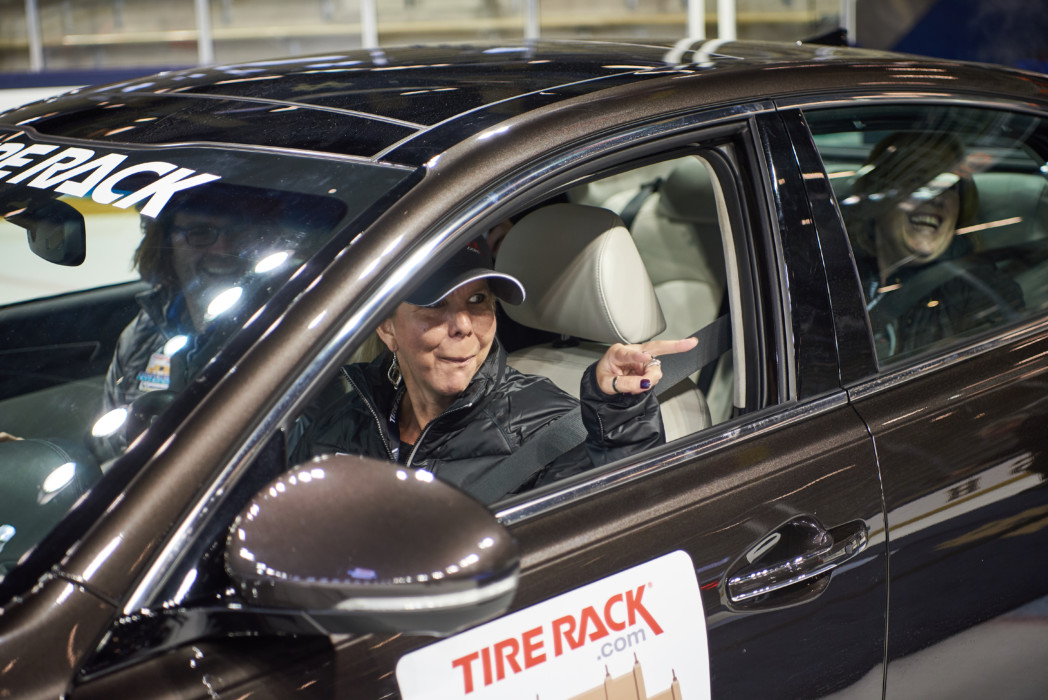
Once I got a car with all wheel drive, I believed I had what I needed for any weather New England threw at me. When 4WD vehicles would fly past me, I usually made a face and said how stupid they were. Ice doesn’t care and you’ll wind up in a snow bank. I’m pretty good at working my tires and steering to get up hills and I can get out of a slide thanks to my many years of driving but I still always put on my winter tires ….because that’s what grandpa said to do. Now, thanks to Michelin and Tire Rack I know WHY!
Recently TireRack.com along with Michelin invited me to test their tires by driving on ice. You may not like this….. but as a woman, I never really knew much about tires. I assumed the treads were bigger on winter tires for a better grip…the end. I drove two different cars on the ice. One had all season tires and the other had winter tires. Depending which car I was driving, I got to race the other car on the ice. Both times I floored it and got all the up to 20 mph and slammed on the brakes at a specific point. I couldn’t believe the difference of control with the winter tires. 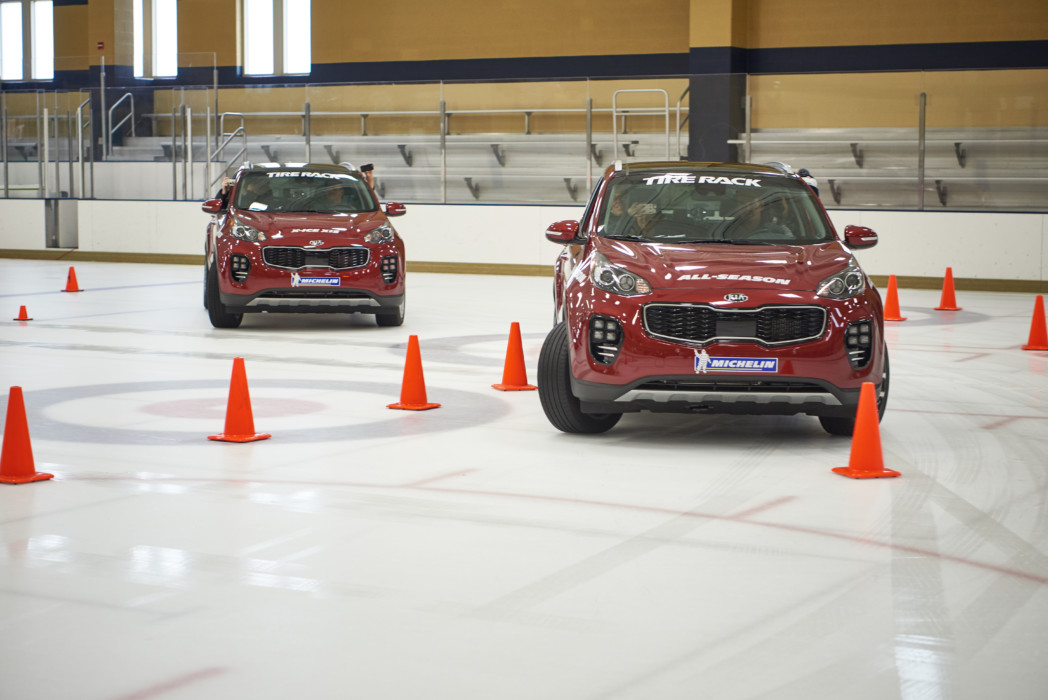
National Highway Traffic Safety Administration report (2012) shows that wintery weather (rain, snow and sleet) accounts for more than 681,000 crashes nationwide, resulting in more than 181,000 injuries and more than 2,400 fatalities.
I learned a ton about tires but I’m going to give YOU the top 7 things you should know. Study this and when you go to purchase your tires with your husband/better half, you’ll give him a surprise at how knowledgable you are!
- Your SUV or CUV doesn’t create additional traction
- Winter tires are for wet, snow, and sleet.
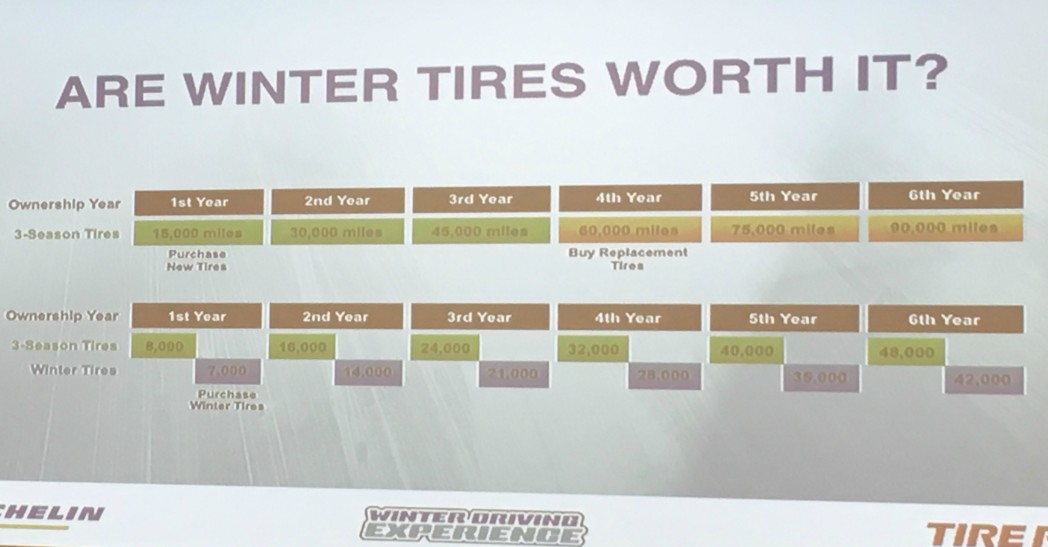
- Winter tires are designed with special materials that stay soft to provide maximum traction in temperatures below 45 degrees.
- Lower temperatures reduce a tire’s flexibility and grip. At 32˚F, the tread rubber on the summer tires found on many performance vehicles becomes so stiff it offers little traction.

Having some fun in the elevator with the Michelin Man - You’ll hear people talk about PSI (pounds per square inch) of tire pressure. Tires lose 1 psi every 10˚ temperature drop. This is why you need to know what your tires should be (read your manual). At 32 psi at 70˚ F will have only 28 psi at 30˚ F. Underinflated tires offer less traction, can reduce fuel mileage, can wear out prematurely and cause damage that compromises their durability.
- Know your tread depth- In winter climates, tires need to be replaced when the tread depth reaches 5/32″. Here’s where you look totally like a know it all. Take a quarter and place it in different treads (Washington’s head down). If part of Washington’s head is always covered by the tread, you have more than 4/32″ of tread depth remaining.
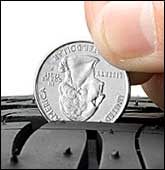
- Good tread means the tire will grip the road surface better. It reduces hydroplaning and helps with your stopping time. On a side note; In the test I slammed the brakes at the same place, I stopped sooner with the winter tires meaning it was a lesser chance of hitting someone. Check out the video showing stopping with three different tires (summer, all season, winter)
- Here’s an extra little piece of knowledge. (photo)
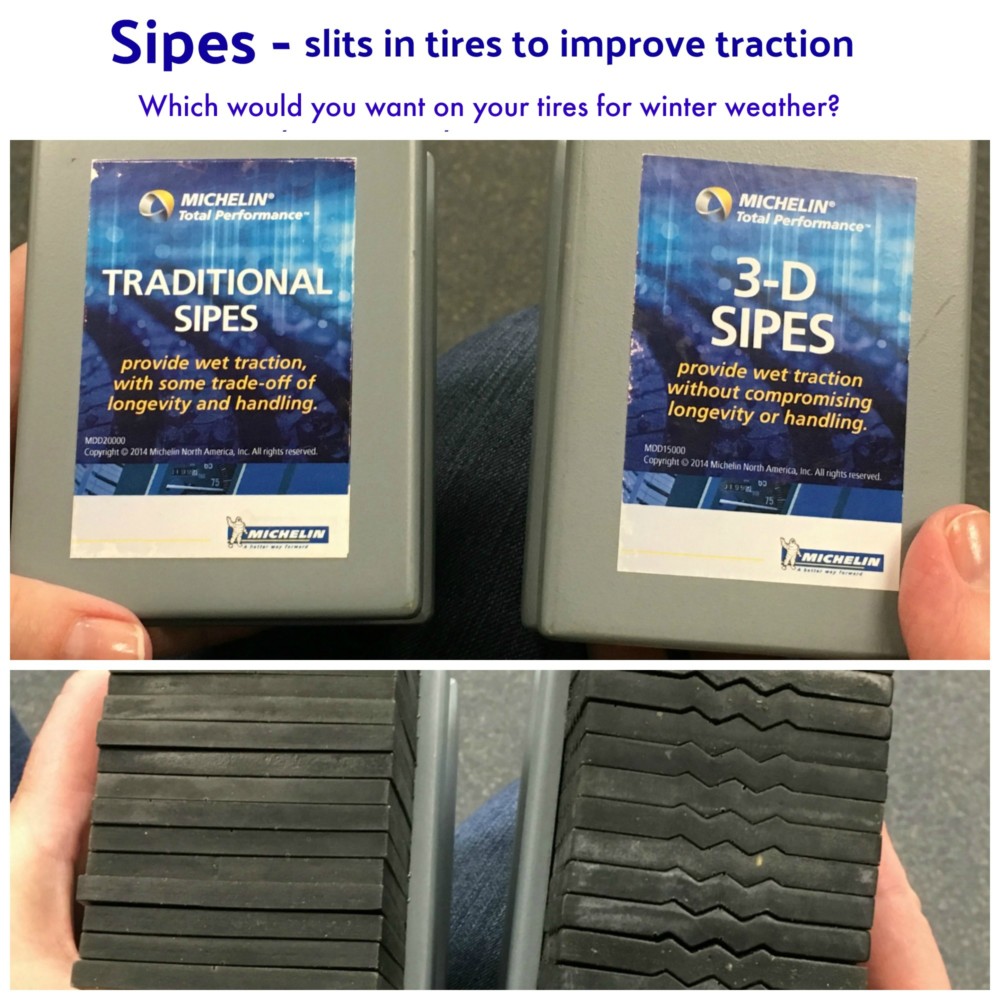
Need help deciding which tires are best for you? Check out TireRack.com!
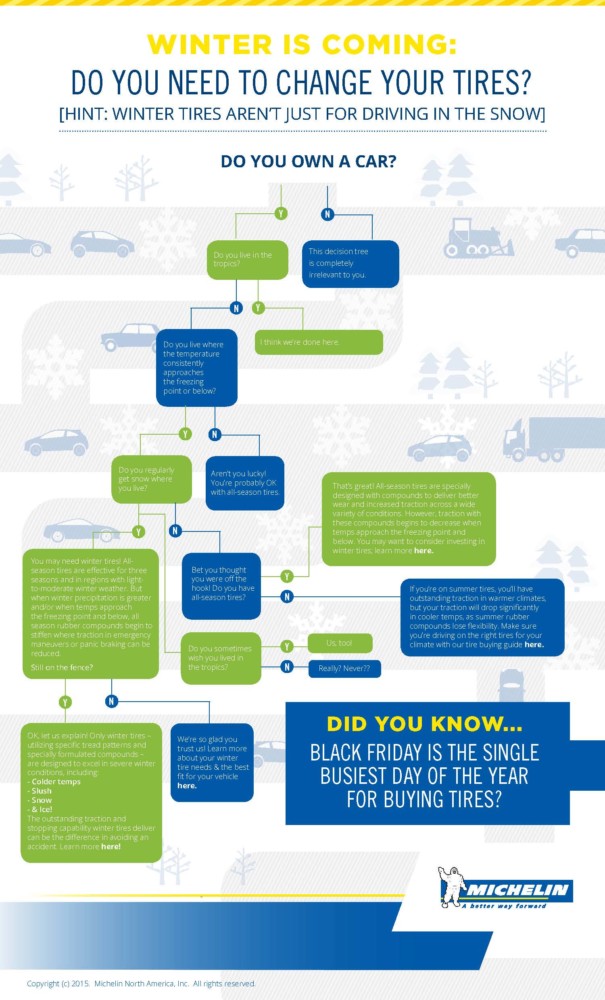
About Tire Rack
Tire Rack,Year-Round Tire Experts, are family-owned and headquartered in South Bend, Indiana, is America’s largest independent tire tester and consumer-direct source for tires, wheels and performance accessories. Tire Rack has also collected results from nearly 130,000 consumer surveys, representing over 2.3 billion miles of real-world tire data and 480+ different models of tires, the largest known cache of such information anywhere.
They have tools such as a Tire Decision Guide to help everyone find the right tire for their vehicle – such as Michelin winter tires.
Their 2.5 million square feet of space in nine distribution centers across the country means they can quickly deliver tires to a home, office or one of its 7,500+ independent, Recommended Installers – often in as little as one business day.
Tire Rack’s team of over 100 test drivers (its sales team) tests tires from every major tire manufacturer at its state-of-the-art, 11.7-acre test facility, as well as on real roads. The findings are then posted at www.tirerack.com, built to be a one-stop resource center for anyone considering a tire, wheel or performance accessory purchase.
Tire Rack experts test 35-40 different tires every test season (May to September), putting them through a battery of track and road tests that evaluate real-world performance capabilities, from hard braking to cornering in both wet and dry conditions. For extra-tough cold weather testing Tire Rack heads to Sweden, where winter reigns supreme and conditions require top snow and ice performance. Everything they learn and know is available free of charge to consumers at www.tirerack.com.

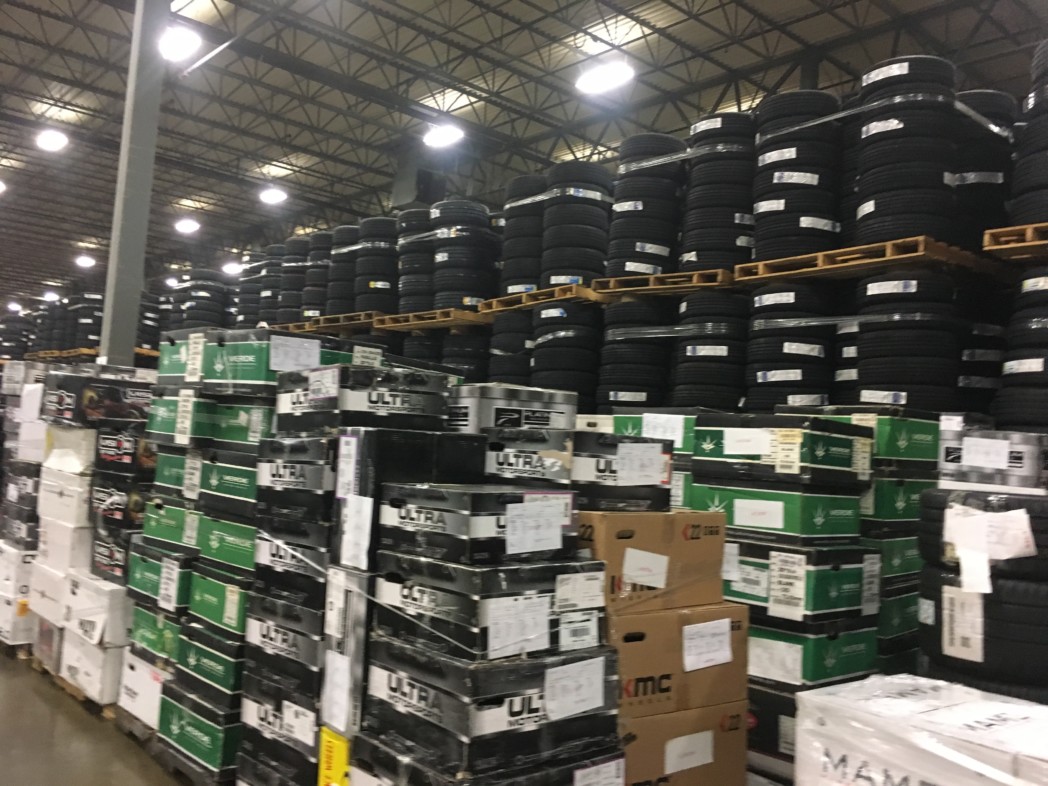







I love this! It’s so important to know your way around a car, especially the tires. They are the first key to car safety, especially in inclement weather.
What an awesome experience. I love getting to take part in real world trials like those. Winter tires really do make a huge difference!
I’m going to have to go up north over the winter and traction is going to be super important. I’ve had some close calls with bad tires before.
What an educational post to share! It’s vitally important that everyone knows about winter tires, for sure! Glad you shared information to get us all educated as the winter season is quickly approaching.
This is great information. I never thought about needing different tires for the cold weather.
It would be such a cool (no pun intended) experience to drive on ice like that! I used to know more about winter tires but now I live where we don’t get snow or ice, so I think I’ve forgotten.
My grandfather used to talk about the same thing! I have all wheel drive now but having tire “smarts” is still top of my list. They’re the only thing that touches the road you’re driving on so it’s important to make sure you’ll be safe!
We don’t really get winter weather around here, so no one buys snow tires. After reading this I can see why they are important where it gets cold.
We get lake effect snow from Lake Michigan where I live, so a good set of winter tires is a must for me. They do make a big difference when it comes to how the car handles the road in winter weather.
I know quite a few people (including men) who could use this knowledge! So many are mistaken about what winter tires are actually good for!
These are really awesome tips! I don’t usually drive during winter but will always keep this in mind.
I’ve never heard of this website, but it sounds like a helpful resource! These are definitely some great things that we as women should know about winter tires. Thanks for sharing.
I always remind my children to check their tires. You can not be complacent that everything is fine as long as the car starts. I will let them know about the hack using a quarter. I will have to check my own tires too.
I love reading about all of these facts. We should definitely learn more about winter tires especially if we’re getting them installed alone.
I don’t know much about shopping for winter tires as my husband would usually take up that job. So it’s really good to learn all of these things! Thanks for all the information.
Didnt know about winter tires. This is a good post and also a great way to inform women about how they drive their cars in the colder seasons.